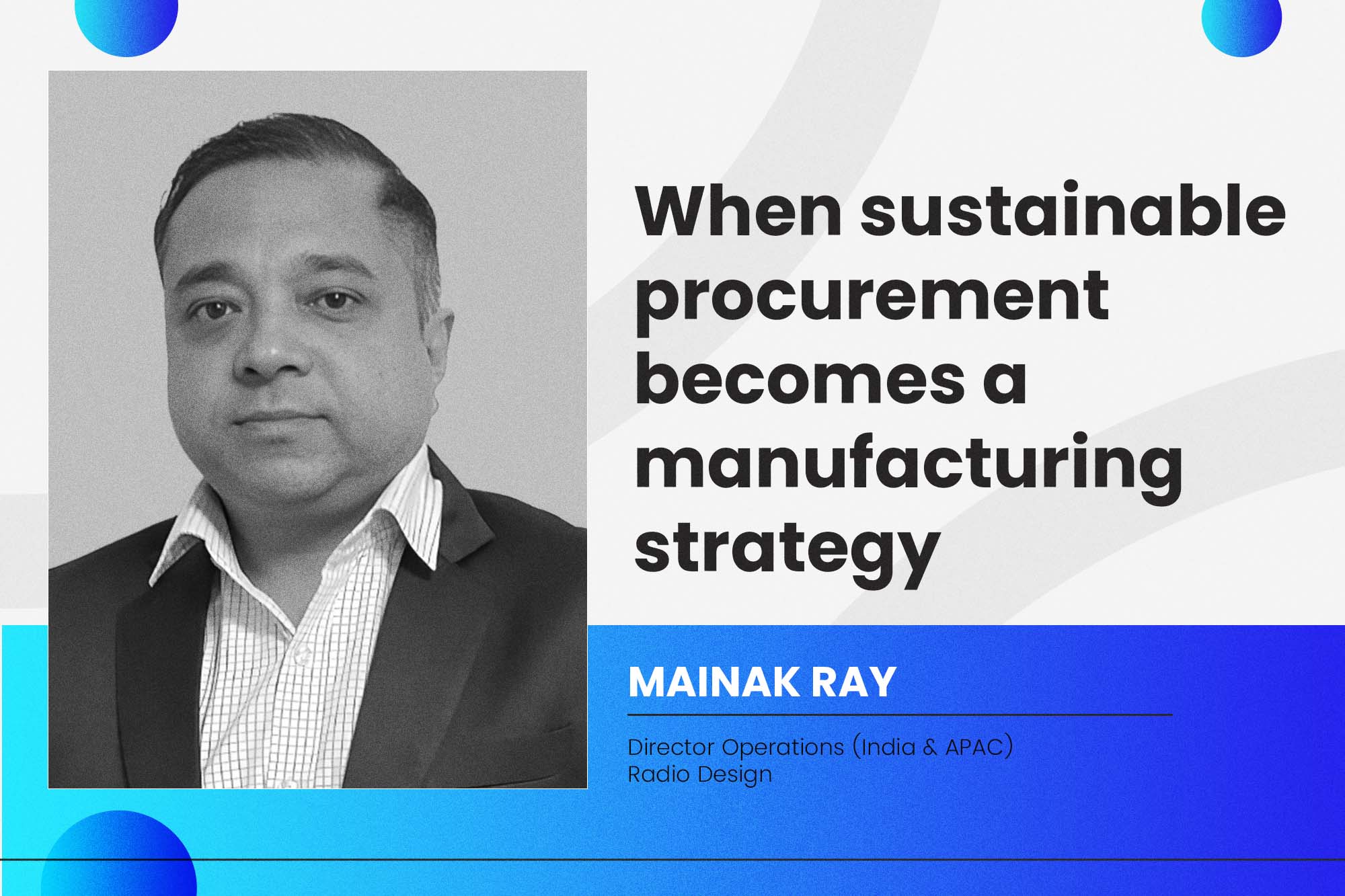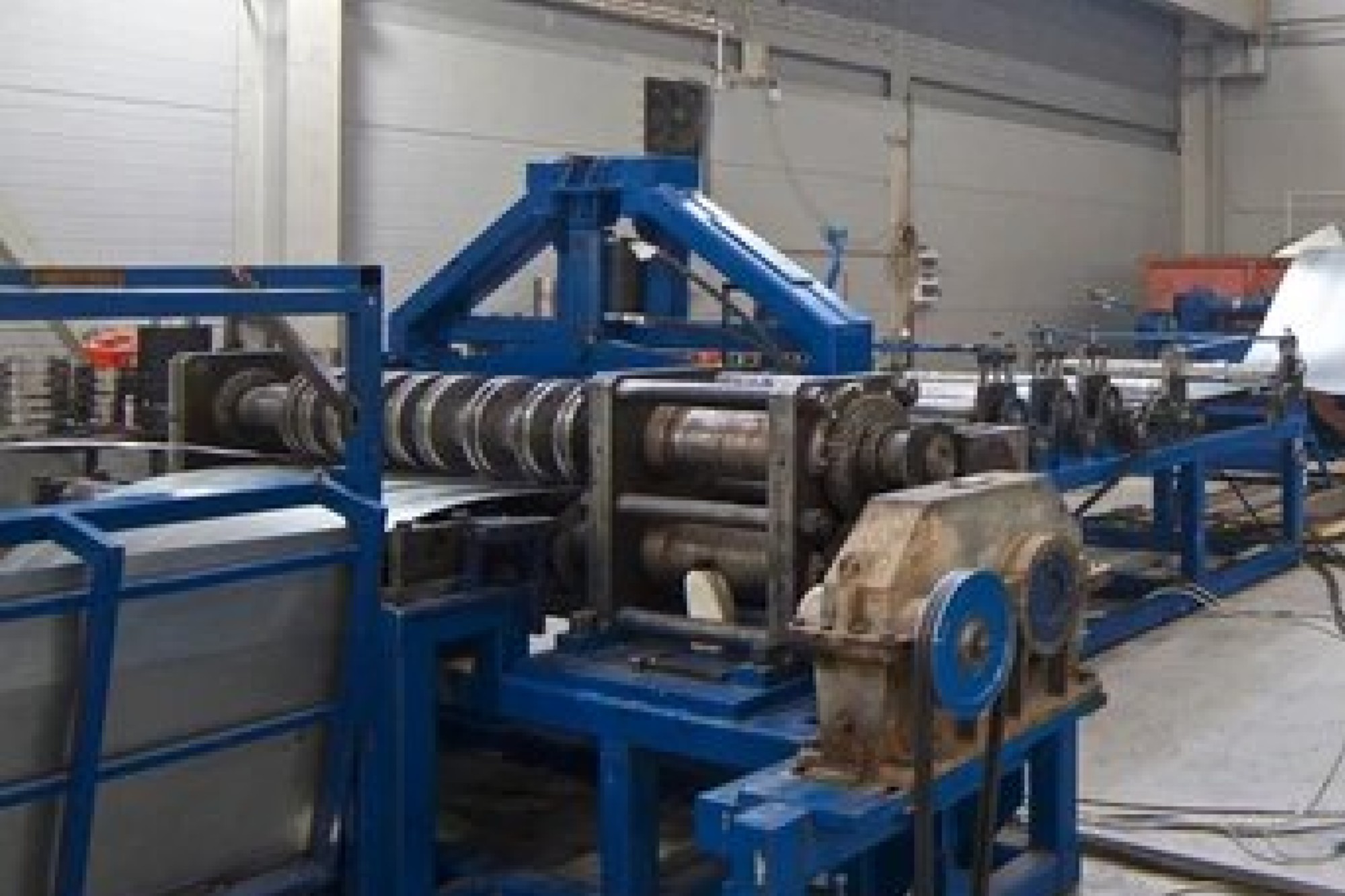When sustainable procurement becomes a manufacturing strategy
By Staff Report June 21, 2025 12:27 pm IST
Companies that adopt sustainable procurement are favoured by customers, investors, and regulators, leading to increased customer loyalty and business expansion. Mainak Ray, Director of Operations (India & APAC) at Radio Design, emphasises the importance of responsible procurement in manufacturing.
The need for responsible procurement is ethical and strategic due to supply chain disruptions, regulatory demands, and environmental concerns. Manufacturing companies are recognising the need to integrate sustainability into their procurement processes. Sustainable procurement is a strategy that combines economic efficiency, environmental responsibility, and social equity in the procurement of goods and services.
What is sustainable procurement?
Sustainable procurement goes beyond traditional purchasing based on cost and quality. It emphasises a holistic evaluation of suppliers, products, and services based on the following key factors:
Environmental Impact: Prioritising products that have a lower carbon footprint, use fewer natural resources, and less waste.
Ethical Sourcing: Partnering with suppliers that uphold fair labour practices, human rights, and responsible governance.
Resource Efficiency: Opting for materials and products that are durable, repairable, and contribute to a circular economy.
Social Responsibility: Supporting local communities, promoting supplier diversity, and partnering with organisations that invest in ethical and social well-being.
Sustainable procurement is a proactive approach that aligns with global initiatives like the UN Sustainable Development Goals (SDGs), the Science-Based Targets Initiative (SBTi), and various carbon reduction pledges.
Mitigating supply chain risks
With increasing regulatory pressure and consumer scrutiny, companies that fail to ensure responsible sourcing face reputational and financial risks. Sustainable procurement helps minimise exposure to labour rights violations, supply shortages, and environmental liabilities, ensuring business continuity.
Innovation and competitive advantage
Manufacturers that integrate sustainability into their procurement strategy encourage suppliers to develop eco-friendly, innovative products. This fosters technological advancements, creates market differentiation and gives companies a competitive edge.
Brand reputation and market growth
Businesses that demonstrate a commitment to sustainability are favoured by customers, investors, and regulators. Companies that adopt sustainable procurement enhance their corporate reputation and appeal to ESG-conscious stakeholders, leading to increased customer loyalty and business expansion.
Regulatory compliance and future-proofing
Global sustainability regulations are becoming stricter, allowing manufacturers to better comply with environmental laws and avoid potential fines and legal complications.
Strategies for implementing sustainable procurement in manufacturing
Manufacturers can successfully integrate sustainability into their procurement processes by following these best practices:
Develop a clear sustainable procurement policy
A well-defined procurement policy should outline sustainability goals, selection criteria for products and suppliers, and mechanisms for monitoring compliance. Leading organisations use frameworks such as ISO 20400 (Sustainable Procurement Guidance) to structure policies.
Engage and collaborate with suppliers
Manufacturers should establish long-term partnerships with suppliers who share their sustainability vision, encourage green production, offer training and incentives, and conduct supplier audits to ensure compliance with ethical and environmental standards.
Implement lifecycle cost analysis (LCA)
Instead of focusing solely on initial purchase costs, manufacturers should evaluate the total lifecycle cost of products, including operational efficiency, maintenance, and disposal. This ensures procurement decisions contribute to long-term sustainability and cost-effectiveness.
Prioritise sustainability certifications and standards
Manufacturers should choose suppliers with credible sustainability certifications like Carbon Trust Standard, B Corp Certification, and Fair Trade Certification, which recognise carbon emissions, high social and environmental performance, and ethical labour practices in the supply chain.
Digitalisation and data-driven procurement
Leveraging digital tools such as AI-driven supplier analytics, blockchain for supply chain transparency, and IoT-enabled tracking of sustainability metrics can enhance sustainable procurement efforts.
Examples of sustainable procurement in manufacturing
Nike: Ethical and sustainable supply chains
Nike has revolutionised its procurement strategy by ensuring responsible sourcing and sustainable production methods. The company’s Move to Zero initiative focuses on reducing carbon emissions and waste across its supply chain. By prioritising recycled materials and energy-efficient manufacturing, Nike has significantly lowered its environmental impact while maintaining product quality and cost efficiency.
Interface Inc.: Circular economy leadership
Interface, a modular flooring manufacturer, has integrated sustainable procurement into its operations by sourcing raw materials from recycled and bio-based sources. The company’s Mission Zero® initiative aimed at eliminating negative environmental impacts led to a 96% reduction in greenhouse gas emissions over two decades.
H&M Group: sustainable material sourcing
H&M has committed to sourcing 100% recycled or sustainably sourced materials by 2030. Now, over 64% of its materials come from sustainable sources, reducing its environmental footprint while aligning with consumer demand for ethical fashion.
Sustainable procurement is no longer an option, it is a necessity for manufacturers striving for long-term success. By integrating responsible sourcing strategies, companies can drive cost savings, mitigate risks, foster innovation, and strengthen their brand reputation.
As industries move towards greener supply chains, manufacturers prioritising sustainability in procurement will gain a competitive advantage and contribute to a more resilient, eco-conscious global economy.
Cookie Consent
We use cookies to personalize your experience. By continuing to visit this website you agree to our Terms & Conditions, Privacy Policy and Cookie Policy.














